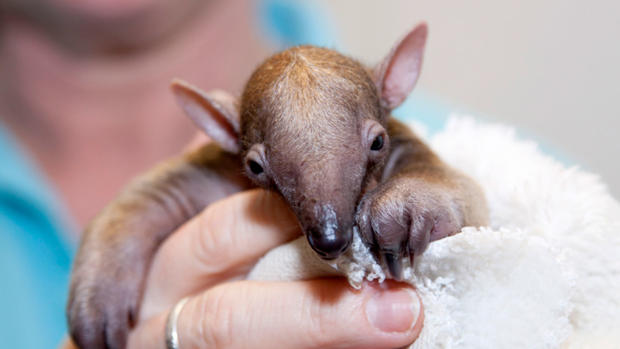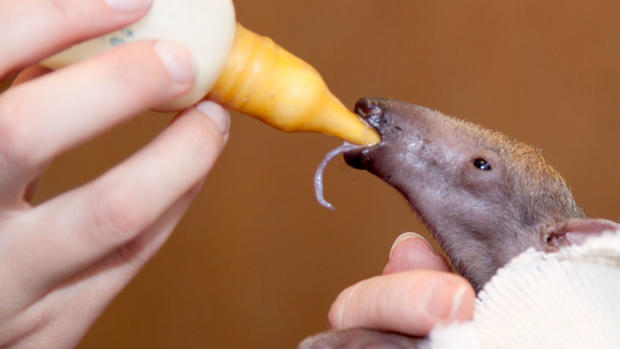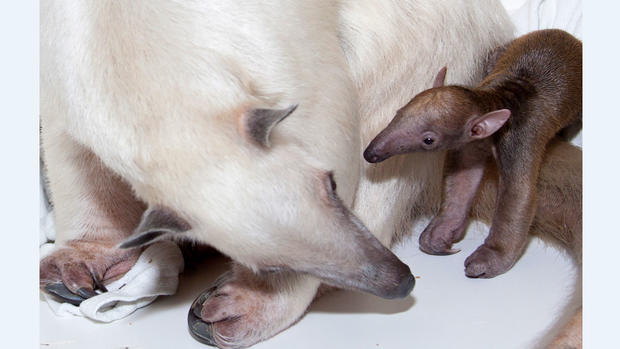Denver Zookeepers Save Newborn Tamandua's Life
DENVER (CBS4)- A newborn tamandua baby is alive and doing well at Denver Zoo thanks to the dedication of zookeepers and veterinarians as the baby's mother learns her new role.
Southern tamandua Rio gave birth to her first offspring on March 7. Zookeepers believe the baby is female and named her "Cayenne."
Unfortunately Rio left the baby unattended within the first 24 hours and was not allowing her to nurse. Staff stepped in to give supplementary feedings day and night while monitoring Cayenne's weight and temperature.
They continued to give Rio time to bond with and nurse her baby but soon realized Cayenne was not getting enough milk.
"We knew from our conversations with experts at other zoos that it can take a new tamandua mother a while to develop maternal instincts, and first births of this species typically have low success rates," says Denver Zoo Education Animal Programs Manager Kristin Smith. "We were determined, though, to make sure this baby would survive while Rio figured out how to be a good mom."
This is the first birth, not only for Rio, but also her mate, Quito. Rio was born in November 2004 at Sedgwick County Zoo in Wichita, Kansas and came to Denver Zoo in April 2005. Quito was born in August 2012 at Reid Park Zoo in Tucson, Arizona and arrived at Denver Zoo in April 2013.
The two were paired under recommendation of the Association of Zoos and Aquariums (AZA) Species Survival Plan (SSP) which ensures healthy populations and genetic diversity among zoo animals. Fortunately, the couple has proven to be an excellent match.
Cayenne was named after the capital of French Guiana, in keeping with the tradition of her parents being named after notable South American cities.
Southern tamanduas are a species of anteater, often called lesser anteaters. They inhabit South America, east of the Andes, from Venezuela to Argentina and Uruguay. Their habitat ranges from savanna and thorn scrub to rainforests and they are well adapted to life both in trees and on the ground. Tamanduas use their long tongues to reach up to 16 inches to feed on insects such as termites and ants.
Although they are widespread, they are uncommon. Hunters often kill tamanduas, claiming they are killing their dogs, but they are really hunted for their meat. They can also be hit by cars. Tamanduas are vulnerable due to loss of habitat and human pest control, which has reduced the populations of termites and ants.






